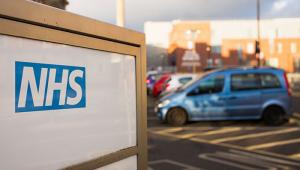
Councils face three big imperatives: to do more with less money; to respond to ever-growing demands from citizens for influence; and to shift towards a preventative model of public services.
All three push a council towards seeking a more collaborative relationship with their residents.
A relationship that is about a shared sense of ambition for a place rather than a transactional contract between taxpayer and public servant.
The New Local Government Network is lucky enough to work with the most innovative councils in the country.
Those councils are recognising that the route to the transformation they seek comes down to a radically redrawn relationship with their communities.
What this new relationship means in practice, however, is still very much development. For some, it is about opening up a new type of conversation between the public sector and communities.
For others, it is about an approach to service delivery built around social networks and ‘strengths-based approaches’.
At NLGN, we are constantly exploring these valuable responses but we also think there is a need to explore the power relationship between public sector bodies and their communities and understand how that collaborative mind-set can be catalysed by tipping the balance of power in the community’s favour.
The report we have launched today, supported by Local Trust, looks at how to make this shift work effectively.
Rebalancing the Power distils five key principles for this new and constantly evolving model.
We take the example of the Big Local scheme, which is funded by the Big Lottery and managed by Local Trust.
Because it involves grants of at least £1.1 million given directly to 150 communities, this unique opportunity has dramatically shifted the power dynamic by putting residents themselves directly in control.
Using interviews and research workshops, our research shares candid and practical insights on how council-community relationships have flourished and the challenges that they’ve faced.
This collaborative way of working is why Big Local may be the most important social initiative currently operating in the UK. It has so much to teach us about how handing over real financial power can create entirely different outcomes for communities that the public sector has struggled for many years to help.
Our report sets out how the traditional roles of local authorities as provider and communities as recipients are no longer sustainable, but neither are they desirable.
‘Without a significant shift in the power dynamic, local public services risk becoming ever more expensive while at the same time decreasing their impact.’
Without a significant shift in the power dynamic, local public services risk becoming ever more expensive while at the same time decreasing their impact.
We identify that in practice the role of the local authority as primarily “service provider” needs to increasingly morph into that of an “action enabler”.
This means that rather than always directing and leading from the front, it will be more about finding ways of supporting individuals to articulate their own solutions and opportunities.
This might then involve identifying and unblocking barriers and convening wider stakeholders where necessary.
The report is full of practical suggestions and new insights into how it can feel to be on the receiving end of the traditional asymmetrical power dynamic. We hope it will be a useful tool for those in local authorities, and indeed the wider public sector, as they think about how to approach, understand and define “the community”.
There is no doubt that what will be needed in the future is a deeper culture change within local government to create a more permissive environment for these new conversations and relationships to be fostered.
This will remain a priority area for NLGN, as we continue to engage with the practical and culture shifts required of our local public services so that they are capable of responding to the resource, demand and expectation imperatives that exist.




















